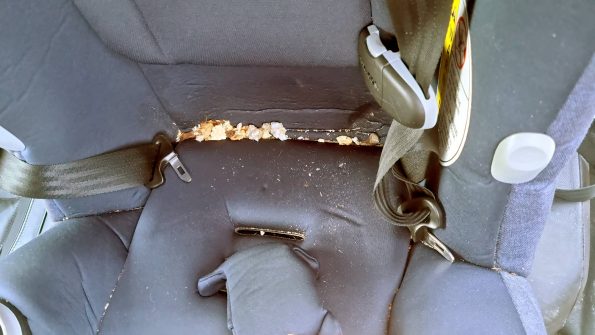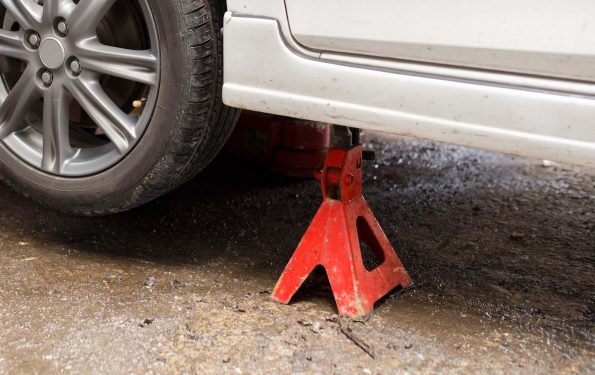Car prices in Australia rose by 20% between April 2020 and April 2024. Unless you want to have to buy a newer, more expensive one, it’s important to look after what you’ve got. One of the best ways to protect a vehicle is to properly store it. Many Australians park their cars on the street or in their driveways, but these aren’t the best options for keeping cars in the best possible condition. This post will provide some tips that you can use to store your car more effectively and keep damage and premature wear at bay.
Choosing a storage location
A garage is the ideal place to store your vehicle, because weather damage will no longer pose a threat, and it’s less likely to be targeted by thieves. However, ventilation is very important. If you are storing your vehicle in a garage, ventilation will prevent humidity from accelerating metal decay on your car, and keep mould and mildew away. If it has been raining and you drive your car into the garage, closing the door, you basically have a hot engine which will evaporate the water from the car and it will be deposited on surfaces in the garage.
If you don’t have a garage, and you don’t need regular access to your vehicle, an alternative vehicle storage solution is a self-storage unit. Many have climate control, which helps to keep the humidity constant. They also have greater security, which prevents theft.
Outdoor storage isn’t an ideal solution and should be a last resort. If you must park outdoors, park in a shady place to protect against sun damage. Covering your car with tarpaulin or car cover can also prevent birds and bats from covering it in their droppings which eat into the paintwork.
Preparing to store your car
If you are storing your car for a longer period of time, there are some recommendations to keep it in good condition. A thorough clean is essential inside and out.

You will probably not have the time to check your car each week, so you need to remove anything that could attract pests in your absence, like the crumbs from a child that’s been eating in the car.
Vacuum carpets and don’t forget the boot.
Clean bird and bat droppings, insects and leaves off your car before storage too, because they can damage its paint if left too long.
Over time, the battery will drain. You can either disconnect it, visit it every couple of weeks and run the engine for a while, or connect it to a trickle charger.
If your car will be stored for a long time, either drain the oil, or change it for some that is new.
Removing your car’s tyres or placing it on jack stands can prevent damage to them. Alternatively, you should move your car every couple of weeks so that the same parts of the tyre are not in contact with the ground.

Think about weather extremes
Not everybody has the luxury of a garage or can afford a storage unit. If you plan on storing your car outdoors, use a tarpaulin or car cover with UV protection to protect your car from the sun’s rays. Exposure to the sun can lead to paint oxidizing, fading, and even upholstery damage. Try to find a tarpaulin that’s breathable, too.
Reflective sun shades can prevent upholstery damage and keep your car’s interior cool but they only tend to be available for windscreens.
Australia’s intense heat is not the only threat posed to your car, however. Rain and humidity can also cause damage. As we mentioned above, high humidity over a long period can lead to interior mould growth, even if your car is stored outdoors. Dehumidifier bags are therefore a worthwhile investment, or, drive your car at least every couple of weeks with the air conditioning on to introduce dry air.
Keeping animals away
Pests pose a significant threat to your car, especially if you are leaving it unattended for an extended period of time. We have a large number of reptiles that love to find nice warm places to hang out, plus insects and rodents that inadvertently make their way into the vehicle.
Rodent repellent and traps should be stored in the garage or storage unit with your car. It’s also important to seal engine bay openings, so animals cannot nest inside of it. There are also covers you can buy designed exclusively for preventing animals from nesting in your engine bay, but they are not as effective at stopping the smallest of wildlife (e.g. ants).
Periodically return to your car and check it for signs of infestation or nesting animals. As suggested above, also perform an intensive clean prior to storage to remove food waste or anything else that could attract animals.
Legal considerations
A car that is registered and used on the road is legally required to have third-party insurance in Australia; this is not included in your registration in NSW, so remember to keep it current. If your car is stored in a garage or storage unit and not driven, you have three months from the date of its expiry to re-register it.
Cars parked on the street can have their number plates seized if registration is overdue by as little as 15 days. Terminating your insurance policy for the three-month window you have where registration isn’t necessary is a bad financial decision. This is because maintaining an existing policy is much more economical than cancelling it and starting a new one. You will also lose your no-claims bonus if your policy stops. Ensuring that your car is insured while in storage means that if any damage occurs, you won’t be out of pocket. Even if you take the aforementioned steps, there are still things that could damage your car, like fires or intentional damage, for example.
Think about car safety
Storage units are the best way to keep your car safe. This is because storage complexes have many different security measures in place to prevent theft from occurring. Security teams also monitor lockers for signs of fire or flooding. If your car is stored in your garage, you won’t be there 24 hours a day to monitor it. When a vehicle is stored in a storage unit, it is under constant supervision. People interested in storing their cars at home in their garages should consider protecting them with an alarms and security cameras. Windows should also be kept closed when the garage is not in use. If you are parking a car on the street, a car cover can block criminals from seeing inside of it. Ensure your car has an alarm system, and that it’s also always parked in a well-lit area, too. Steering wheel locks can come in very handy. Always remove valuables from your car or keep them out of sight even if it’s being stored inside of a storage unit, because they can attract thieves.
Australia’s weather makes finding suitable long- or short-term storage locations for people’s cars difficult. However, incorporating the guidance offered here into your car storage strategy can prevent damage or theft from occurring. Protecting your car during the ongoing cost-of-living crisis can save you money and a lot of stress, so do everything you can to maintain your vehicle’s safety.
